





|
Hasiera · Home |
|
Ezaugarriak · Features |
|
Oharrak · Notes |
|
Sarrera · Introduction |
|
Euskara |
|
Folklore |
|
Kirolak · Sports |
|
Musika · Music |
|
Janedanak · Gastronomy |
|
Tokiak · Places |
|
Historia · History |
|
Politika · Politics |
|
Diaspora |
|
Internet |
|
Albisteak · News |
|
Nahas Mahas · Misc |

For security reasons, user contributed notes have been disabled.
by David Cox
| David Cox is employed as a writer and editor and lives in Ontario, Canada. David also contributes review articles to the U.S -based internet publications rambles.net and rootsworld.com, where he writes about European world-roots music, specializing in the music of Euskal Herria and Cymru-Wales. His hobbies include studying the Basque and Welsh languages and playing Euskopoli with his children. |
Perhaps you are a Basque or a descendent of Basques and want to get to know your culture a bit better. Or live in Euskal Herria and have never discovered Basque language music, or maybe you’re just interested in the authentic music of many lands. You wonder where to start. Here’s a brief overview of some favorite, readily available CDs.
Like the Basques themselves, Basque music is just a bit different. While absorbing outside influences, it remains very much rooted in the rural valleys and rugged coastlines of Euskal Herria, the Basque country. And what are those instruments -- trikitixa or soinua, txistu or xirula, txalaparta, alboka....? What’s an irrintzina? You'd like to enjoy Basque music, but where do you start? As you’ll find when you get to know it, it’s a very satifying and enjoyable, with danceable rhythms, poignant lyrics, and strange instruments steeped in tradition.
Basque music really isn't that obscure or mysterious. It’s wide-ranging upbeat and contemporary without being stuck in tradition. With a few pointers and recommendations, you'll be ready to dance or just listen.
It all started with Mixel Labéguerie ... or Etxahun-Iruri?
The Basque Country had always had its rural troubadours. In the 19th century, Iparragirre wrote "Gernikako Arbola" or Tree of Gernika. Bilintx and Xalbador were names of other important and famous bertsolaris. In the dark days of the 1950s, when most Basques languished under the Spanish dictatorship, Piera Bordazarre, Etxahun-Iruri, wrote pastorales, rural folk operas in Trois Villes (Iruri) in Xiberoa. Etxahun died in 1979, but his music lives on and inspires Basques today. Not that Basque cultural activity was ever curtailed competely by Franco: Bertsolaris on the Spanish-administered side included Basarri and Uztapide from Gipuzkoa, and Enbeita from Bizkaia, underestimated by the authorities as harmless rural folk acts.
In the 1960s, Basque was still primarily a low-status rural language of peasants and fishermen in France, and practically banned in Franco’s Spain. Popular mass entertainment such as pop music usually came from Paris, Madrid, London or the United States. But Mixel Labéguerie (1921-1980) a Basque folksinger, politican and doctor from the French-Basque province of Lapurdi, inspired a generation of musicians on both sides of the border. In the late 1960s, Mikel Laboa continued this tradition in the Spanish Basque country, followed by Benito Lertxundi. Natxo de Felipe founded Oskorri in 1971. This was the first revolution: popular music in Basque. Even so, much of this music was inspired by North American and British folk and popular music. Often, traditional or imported tuned were used with lyrics by superb Basque bertsolaris such as Xabier Amuriza and, later Jon Sarasua.
Old and New
But something happened in the late 1980s to begin to set Basque music on its own path. Popular musicians began to rediscover the wealth of Basque tradition, and integrated it into the music. By the mid-90s, a neo-traditional revival was in full swing. And at the centre was Kepa Junkera Urraza, a young man from Bilbao. Junkera’s grandfather had bequeathed to him the love of the trikitixa, a diatonic accordeon that had been played in the Basque country for about a hundred years. Cross-cultural ties with Catalonia, Galicia, Quebec, Ireland and other musics reignited veteran Basque artists and led to a second renaissance.
Different styles
Today’s Basque music scene is diverse. While true to Basque traditions, it draws on so many different kinds of music that there's no problem finding music that suits your style. Don’t be intimidated: Most CDs include English translations of the lyrics -- almost all include Spanish and French. Here are some new and readily available choices:
For world roots fans:
The most important, relevant and interesting Basque music is what is loosly termed world roots, usually a fusion of indigenous music, folk, celtic, jazz, and other strains.
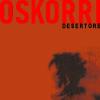 Oskorri
Oskorri
Oskorri (www.oskorri.com) is a veteran band
that are involved in many projects, but their last four band albums
have been pure genius. Fans of Fairport Convention or Steeleye Span
will see how Oskorri has expanded on this inheritance. But this is
misleading: In terms of their impact on a people and its culture,
Oskorri could be compared to La Bottine Souriante, or Venezuela’s Un
Solo Pueblo. In the early 1970s, Oskorri’s first record set Gabriel
Aresti’s working-class poetry to music. They have recorded over 30
discs since; their most accessible recent CDs include Ura-H2O and
Desertore.
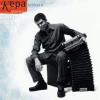 Kepa Junkera
Kepa Junkera
If you like upbeat
traditional music, like La Bottine Souriante, check out Bilbao
accordionist (trikitilari) Kepa Junkera (www.kepajunkera.com); steeped
in Basque tradition, Junkera works with musicians from around the
world such as Pat Metheny, The Chieftains, Patrick Vaillant, Ricardo
Tesi, as well as prominent Basque artists such as Anton Latxa and Ibon
Koteron. His sound is uniquely his own. Maren is an eclectic,
innovative album. Junkera recently won a Latin Grammy for his live
collection simply titled K.
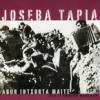 Joseba Tapia
Joseba Tapia
Joseba Tapia (www.hotsak.com/A/Joseba_Tapia)
is a prolific, self-taught, almost ubiquitous accordionist and singer
who appears on many of the CDs on this page. He’s been involved in a
number of projects of note, including a recording of songs imported
from Quebec (sung in Basque), a recording of Basque songs from the
Spanish Civil War, Agur Intxorta Maite, including "Eusko Gudariak;"
his many collaborations with percussionist Leturia are
legendary. Tapia teamed up with Ruper Ordorika and Oskorri guitarist
Bixente Martinez to form the Basque folk supergroup, Hiru Truku. He
also records with children’s entertainers, Takolo, Pirritx eta
Porrotx.
Singer-songwriters: Veterans and newcomers
Here are some other artists of note: Benito Lertxundi is sort of a Basque Leonard Cohen. Nere Ekialdean is his latest disc. A native of Oria, Letxundi has been around for ever. If Letxundi is the father figure, Mikel Laboa is the grandfather. Fans of Bob Dylan, or lovers of Latin nueva trova such as Silvio Rodriguez, should try Mikel Laboa’s 60ak+2. Slightly more traditional, Erramun Martikorena is a shepherd from the French side of the border with a nice tenor warble. Another singer, with a great voice, is Amaia Zubiria. Mikel Markez is a young balladeer in the Rodriguez mold with some promise.
For folklorists
If you are a real folklorist, Alan Lomax’s two collections (from Euskadi and Nafarroa) are now available on CD from Rounder. A selection of Etxahun’s songs, from his pastorales, is available from Elkar. Oskorri’s Pub Ibilitaria series (eight CDs so far) brings audience participation to the fore and presents many old and nearly forgotten delights. Oskorri also recorded an album of songs by Iparragirre with the people of his home town of Urretxu.
A bertsolari is a solo versifier. You can pick up recordings of the annual bertsolari competitions from Elkar. New young bertsolaris include Maialen Lujanbio and Andoni Egaña.
A number of traditional trikitixa duos such as Imuntzo eta Beloki have new recordings available blending decades-old style with modern technology. Triki duos such as Alaitz eta Maider and Tapia eta Leturia provide a contemporary take on this style.
Orchestral...choral...jazz
And there is much more: Classical music lovers probably know Maurice Ravel. You may not have known he was half Basque and was born in Iparralde, the Northern Basque Country, and once composed a piece he tentatively titled Zazpiak Bat, but later turned into the G Major Piano Concerto, the so-called Basque Rhapsody.
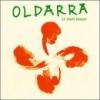 Do you love choirs? There are many great
basque choirs. Try Oldarra, the Basque Choir from the Bayonne area. Le
Chant Basque is a beautiful introduction to Basque music for
male-voice choir. Includes full-bodied choral renditions of "Boga
Boga", "Agur Januak" and "Haurtxo Txiki."
Do you love choirs? There are many great
basque choirs. Try Oldarra, the Basque Choir from the Bayonne area. Le
Chant Basque is a beautiful introduction to Basque music for
male-voice choir. Includes full-bodied choral renditions of "Boga
Boga", "Agur Januak" and "Haurtxo Txiki."
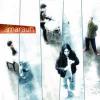 For jazz fans, start with complex oboe-based jazz from Durango’s
Amaraun. The accomplished quartet weaves a web of mostly up-tempo
instrumental jazz and a Sarrionandia poem put to music. Junkera’s
Triki Up (Kepa, Zabaleta eta Imanol) is a mix of jazz and trikitixa.
For jazz fans, start with complex oboe-based jazz from Durango’s
Amaraun. The accomplished quartet weaves a web of mostly up-tempo
instrumental jazz and a Sarrionandia poem put to music. Junkera’s
Triki Up (Kepa, Zabaleta eta Imanol) is a mix of jazz and trikitixa.
Basque music for children
 There is plently of choice. And what a great
way to expose the young ones a bit of Basque. Children love Takolo,
Pirritx eta Porrotx, (www.takolopirritxetaporrotx.com)
the singing, dancing and funloving clowns from Gipuzkoa. While this
music is for children, its not inferior in any way -- in fact its
superior to most North American or European pop. Why -- because this
is a child-friendly culture. The popular "pailazoak" don’t write down
to the little ones. Guests include such Basque stars as Tapia eta
Leturia, Iker Goenaga, Oreka TX. Takolo has recently announced his
retirement - the last album they made as a trio was the excellent
Poxpolin Marisorgin. Their 15th anniversary anthology is called
Katxiporreta.
There is plently of choice. And what a great
way to expose the young ones a bit of Basque. Children love Takolo,
Pirritx eta Porrotx, (www.takolopirritxetaporrotx.com)
the singing, dancing and funloving clowns from Gipuzkoa. While this
music is for children, its not inferior in any way -- in fact its
superior to most North American or European pop. Why -- because this
is a child-friendly culture. The popular "pailazoak" don’t write down
to the little ones. Guests include such Basque stars as Tapia eta
Leturia, Iker Goenaga, Oreka TX. Takolo has recently announced his
retirement - the last album they made as a trio was the excellent
Poxpolin Marisorgin. Their 15th anniversary anthology is called
Katxiporreta.
The Haur Jolasen Abestiak series of discs, three in all, is also excellent.
Basque for heavy metal, alternative,reggae, and ska fans
 There is lots of great Basque metal
and rock, starting with the pride of Nafarroa, Berri Txarrak (www.berritxarrak.net). Simply
one of the best hardcore rock acts on the planet. Their newest CD
Libre© was voted best album of 2003 in the Spanish state. Other famous
rock acts are Eibar’s Kokein, Su Ta Gar, Sustraia, and EH Suharra.
There is lots of great Basque metal
and rock, starting with the pride of Nafarroa, Berri Txarrak (www.berritxarrak.net). Simply
one of the best hardcore rock acts on the planet. Their newest CD
Libre© was voted best album of 2003 in the Spanish state. Other famous
rock acts are Eibar’s Kokein, Su Ta Gar, Sustraia, and EH Suharra.
 Fermin Muguruza (formerly of Negu Gorriak)
is the big name in alternative music. Not to be confused with singer
Jabier. There are several great reggae and ska artists including the
group Skalariak.
Fermin Muguruza (formerly of Negu Gorriak)
is the big name in alternative music. Not to be confused with singer
Jabier. There are several great reggae and ska artists including the
group Skalariak.
Basque Collections
 The two best recent collections are the
three volume CD Euskarians (www.euskarians.com), a selection
of folk-pop from Elkar, and Wagram’s rockier collection Basque
Planet. There is another Wagram compilation called Basques -- Mysteres
d’une Tradition that combines choirs, folksingers, kalejiras and heavy
metal acts such as Sustraia, focusing on the French side of the
border. These are great ways to discover which artists you like best.
The two best recent collections are the
three volume CD Euskarians (www.euskarians.com), a selection
of folk-pop from Elkar, and Wagram’s rockier collection Basque
Planet. There is another Wagram compilation called Basques -- Mysteres
d’une Tradition that combines choirs, folksingers, kalejiras and heavy
metal acts such as Sustraia, focusing on the French side of the
border. These are great ways to discover which artists you like best.
Basque instruments
The alboka is a primitive sounding reed instrument related to many similar instruments such as the duduk. Ibon Koteron is a prominent practitioner. His recent CD Airea was produced by Kepa Junkera. The txalaparta is a famous Basque two-person percussion instrument. Junkera also produced a txalaparta-based album, Quercus Endorphina, by Oreka TX (Igor Otxoa and Harkaitz Martinez). For trikitixa, check out Imuntzo eta Beloki from the Urola Valley. And the irrintzina? It turns up from time to time on many of these recordings. It’s a Basque yodel that sounds a bit like a horse or bird. You’ll know it when you hear it!
And then what....
For buying CDs, (www.megadenda.com) is a must. It has the best collection of all things Basque. Some items can be bought through suppliers in the States. Try (www.cdroots.com) in Connecticut for Basque CDs. The internet is full of reviews of great Basque music. Be aware of the main Basque labels. Elkar (www.elkarlanean.com) along with its allied network, is the most prominent. But Metak (www.musikametak.com)and Gaztelupeko Hotsak (www.hotsak.com) often have items of interest. Pamplona-Iruna’s Gor (www.gordiscos.com) specializes in rock.
Recommended Albums
Here are seven albums that constitute a fine starter set of Basque recordings, in differnt genres. But the albums recommended below provide an overview of different styles and periods of Basque music.
-
 Oskorri 25 Kantu Urte
(Elkar) The ultimate musical expression of Basqueness: Includes
"Euskal Herria Euskaraz" with a verse in Catalan, and a duet with
Laboa on "Aita Semeak."
Oskorri 25 Kantu Urte
(Elkar) The ultimate musical expression of Basqueness: Includes
"Euskal Herria Euskaraz" with a verse in Catalan, and a duet with
Laboa on "Aita Semeak."
-
 Kepa Junkera Bilbao
00:00 h (Resistencia) A superb fusion of old and new; includes
many notable Basque and world roots artists, notably Bela Fleck.
Kepa Junkera Bilbao
00:00 h (Resistencia) A superb fusion of old and new; includes
many notable Basque and world roots artists, notably Bela Fleck.
-
 Tapia eta Leturia Hain
Zuzen (Hotsak) Radical and upbeat. A live compilation with some
great new material: Leturia’s percussion is inspiring.
Tapia eta Leturia Hain
Zuzen (Hotsak) Radical and upbeat. A live compilation with some
great new material: Leturia’s percussion is inspiring.
-
 Various Artists
Euskarians (Elkar) The complete 3 CD folk collection includes
Laboa, Lertxundi, Imanol, Ordorika, Jabier Muguruza, Junkera...and
more!
Various Artists
Euskarians (Elkar) The complete 3 CD folk collection includes
Laboa, Lertxundi, Imanol, Ordorika, Jabier Muguruza, Junkera...and
more!
-
 Takolo, Pirritx eta Porrotx
Poxpolin Marisorgin (Matxinsalto) Made for children, but adults
can dance to it too; the best Basque musicians love to record with
these dynamic clowns.
Takolo, Pirritx eta Porrotx
Poxpolin Marisorgin (Matxinsalto) Made for children, but adults
can dance to it too; the best Basque musicians love to record with
these dynamic clowns.
-
 Berri Txarrak
Libre© (Gor) Hardcore rock by one of the heaviest bands on the
planet. The latest, and perhaps the last with the original lineup.
Berri Txarrak
Libre© (Gor) Hardcore rock by one of the heaviest bands on the
planet. The latest, and perhaps the last with the original lineup.
-
 Mikel Laboa 60ak+2
(Elkar) Retrospective on his early music including "Txoria Txori," a
world-class protest song.
Mikel Laboa 60ak+2
(Elkar) Retrospective on his early music including "Txoria Txori," a
world-class protest song.
These are just my favorites, you can find your own!
David Cox writes on Basque music and culture for the internet newsletters www.rambles.net and www.rootsworld.com.
Manu Gogenola, a Basque author who has written on traditional folk instruments (see David's review at http://www.rootsworld.com/reviews/albokabook.shtml), saw David's article on Basque music and had a few comments he wished to add. With David's and Manu's permission, those comments appear below.
I have read your article at Buber's. It's quite complete. The evolution is right: Iparragirre, Labegerie, Laboa...
I would have mentioned "Ez dok Amairu", as the group where Laboa, Lertxundi, Lete, Lurdes Iriondo, the Irigaray brothers, the Arza brothers and many more played from 1966 till 1972.
I also consider Piarres Bordazaharre "Etxahun" Iruri as a very important figure. A singer, song composer, xirula player (he started playing it when the three ones that remained quit. He was almost sixty, though he had played it when young, together with the harmonica), a pastoral writer and the one who introduced many songs and in fewer hours (pastorals had been 6 hours long and he reduced it to 3, and not as many songs used to be sung, before him. He was also a dance teacher. A kind of a renacentist from Xiberua.
Zuberoa /Xiberua is an unbelievable case. Now they are around 13.000 people, and they never were more than 30.000, but it is a place, province, region... with a great capacity for arts, and mainly music. There still are a lot of great singers, that keep their a capella style: Bedaxagar, Arotze, Etxart father and son and son-in-law, Etxekopar, Xuburu, Berzaitz, Bordaxar, Luro, Pinque and a marvellous singing woman: Maddi Oihenart.
As you say, it is your choice, you mention your favourites. I would have mentioned Arima Beltza as a blues group.
My favourites are:
Singer songwriters: Imanol, Lete, Ruper Ordorika (a rock singer songwriter) and Petti, who also does blues.
Folk: Jean Mixel Bedaxagar; Mitxel Etxekopar/Maddi Oihenart/Mixel Arotze; Dominika eta Niko Etxart&Robert Larrandabürü; Hiru truku; Juan Mari Beltran; Oskorri; Ibon Koteron.
Rock/blues: Niko Etxart; Arima Beltzak
Rock /Pop: Ruper Ordorika
Folk seems to be more popular among us than rock, blues and pop. And it is. We have had the two ends: folk and heavy. Not too much in between.
You probably know them, but these are some other sites:
http://www.euskalmusika.com/es/principal.html
http://perso.wanadoo.es/arizkun/Begi/Kantuak/Kantuak.html
musical instruments:
http://www.txiski.net/txalaparta/indice.htm
http://3cultures.free.fr/txalaparta/#euskara
http://www1.euskadi.net/kultura/musica/musica00_c.htm
http://audio.ya.com/ibon-koteron/
http://usuarios.lycos.es/Aqueron/navarra.htm
http://www.lachacona.com/english/einstrumentos/eimusespa.htm
http://www.uam.es/personal_pdi/filoyletras/jsango/txalaparta2.htm
other ones:
http://www.lafactoriadelritmo.com/mvasca/historia.shtml
http://www.music.ed.ac.uk/colloquia/conferences/esem/lab.html
http://dmoz.org/World/Euskara/Kultura/Musika/Tradizionala/
http://www.eke.org/kultura/musika
http://gofree.indigo.ie/~janoty/euskadi/musiq.htm
this one looks good too:
http://www.euskonews.com/0298zbk/gaia29803eu.html
David, congratulations for your article at Buber's and best wishes,
|
Please report any problems or suggestions to Blas. Eskerrik asko! |





